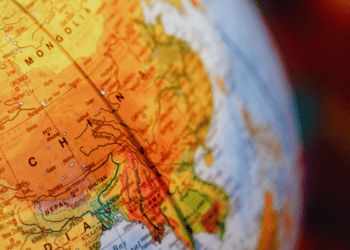In today’s Ottawa Citizen, MLI’s Brian Lee Crowley makes the case that in a world of finite resources, simply taxing the rich may cause more harm than good for the economy.
The problem with ‘tax the rich’
BY BRIAN LEE CROWLEY, OTTAWA CITIZEN JUNE 7, 2013
When asked why he robbed banks, notorious gangster Willie Sutton is alleged to have replied, “Because that’s where the money is.”
Some of the debaters at the recent Munk Debate on whether we should tax the rich more felt like they were channelling Willie.
By way of context, the Munk Debates are sponsored by Canadian businessman and philanthropist Peter Munk. They bring together global intellectual heavyweights to debate hot topics of world interest.
The last debate, held May 30 in Toronto, was no exception. Nobel Laureate Paul Krugman, former Greek Prime Minister George Papandreou, former Speaker of the U.S. House of Representatives Newt Gingrich, and famed economist Arthur Laffer debated the motion “we should tax the rich more.”
Surprisingly, given the ideological gulf between the debaters and their impressive intellectual firepower, the debate seemed to me to fail to tackle the central issue: not “do we want more government?” but “how do we get the best value for society out of our scarce resources?” We can all think of pet projects we would like government to undertake, and most of us would be prepared to accept higher taxes if it meant that project went ahead. But we go badly wrong when we frame the question this way.
The reason we go wrong is that it makes it sound like the money is free, that taking it from “the rich” leaves everything else as it was, and just gives us the benefit of greater public spending. But when you take money from someone, it is not as if they had no plans for it. They were going to use it to buy goods and services or to save and invest. All of those things are good for everyone, creating growth and jobs. But if you take their money through taxation, society does not get that benefit. Instead it gets the very different benefit of increased public spending.
Which of these is more valuable? Again if tax money just magically appears, any benefit from public spending is a pure gain for society.
But if private spending also creates public benefits like growth and jobs, you must subtract the lost benefits of the private spending from the benefits of the new public spending. Remember, the decision is not whether the dollar is to be spent, but by whom and on what.
For a lot of reasons, including that we spend our own money more carefully than we spend other people’s money (Senate expenses, anyone?), a dollar raised in taxes costs more than a dollar in lost economic activity. A very conservative estimate would be that this so-called deadweight loss is about 20 per cent. In other words a dollar taken out of private hands and spent by government doesn’t just mean a dollar less in private activity but $1.20 less.
That would be fine if we got $1.20 in value from a dollar spent in the public sector but governments are notoriously wasteful and inefficient. Decisions are slow and cumbersome and are often taken for reasons of political expediency rather than economic impact (flown out of Mirabel lately?), so a dollar in public spending produces less than a dollar in actual economic benefit. The net public benefit of shifting that dollar by taxation is starting to look pretty skimpy.
That brings us to the other great undefended assumption of the debate, namely that larger government is the best friend of the most vulnerable. If you accept that premise, then resisting higher taxes for the rich sounds like mean-spirited denial of benefits to the needy.
Leave aside the fact that government itself does many things that leave the most vulnerable worse off, such as agricultural supply management that makes their food more expensive, or employment insurance, whose benefits go predominantly to the well-paid, and that much public spending goes to comfortable civil servants, not the poor. Is more public spending what the poorest need?
Not if Canada’s experience of the 1990s is any guide. In the decade that followed the Chrétien government’s great fiscal reforms, we saw the size of government go from 53 per cent of GDP to 39 per cent, an unprecedented fall. We balanced the books and cut taxes to boot. Yet we simultaneously saw the number of people living in poverty fall dramatically.
Why? Because we unleashed a torrent of private investment and economic growth that pulled previously unemployed people into work and the very best escape route from poverty is more family members able to work more hours. We made government smaller while generating a tide of growth that lifted all boats.
In Willie Sutton’s terms, the rich may be where the money is; that doesn’t mean substituting government’s decisions for their decisions about how to spend it produces the best outcomes, even for the poorest among us.
Brian Lee Crowley (twitter.com/brianleecrowley) is the Managing Director of the Macdonald-Laurier Institute, an independent non-partisan public policy think tank in Ottawa: www.macdonaldlaurier.ca.




